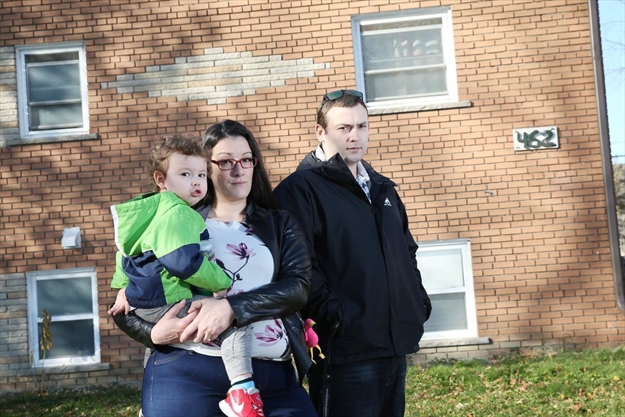When Angelica Donato was first notified about an eviction hearing against her at Ontario’s Landlord and Tenant Board, the notice was delivered by mail, for a date this summer that was eventually postponed during the province’s COVID-era eviction halt.
But when the case was rescheduled for a virtual hearing in early September, Donato said that notice never arrived — claiming it was delivered by email to a misspelled address.
Although her landlord appeared before the tribunal, Donato said she only learned about the new hearing date after an eviction was granted.

“The hearing went on without us,” she said. And Donato isn’t alone.
In recent weeks, legal clinics across the province have been sounding alarms about the shift to digital operations by the Landlord and Tenant Board (LTB) during the pandemic — including problems with hearing notices being sent by email.
“It’s not just the tenants that are saying they didn’t get notice,” said Julius Mlynarski, director of South Etobicoke Community Legal Services, who is helping Donato.
“We are not getting notice … we’re not sitting there lying about it, or trying to make up excuses,” he said. At his clinic alone, there have been two cases in recent weeks. From colleagues at other clinics, he’s been told of nearly 15 cases in mid-to-late October.
Since Ontario’s eviction moratorium lifted at the end of July, the board has been working through its backlog of pre-pandemic cases. But they’ve started to cross that threshold recently, with Tribunals Ontario confirming late last month that they were scheduling LTB hearings before the end of December in cases where landlords applied to evict their tenants in March.
While Premier Doug Ford pledged that no one would lose their home for missing rent during COVID-19, the board processed 668 applications to evict tenants for unpaid rent from March 17 to 31; 1,407 applications in April; 1,711 in May; 1,415 in June and 1,414 in July — plus 1,708 in August, after the moratorium ended. Those applications aren’t guaranteed to result in eviction orders, but are the first step in that process.
Dozens of legal clinics across the province recently endorsed a report laying out issues with the LTB’s current operations. It calls on the board to stop relying on email to deliver notices of hearings — unless it’s specifically requested and all contact information is confirmed to be correct — and to halt any proceedings where one party doesn’t show up, unless the board could be satisfied that the missing person knew their hearing was happening and had reliable means to access it.
“These are legal proceedings,” said Yodit Edemariam, director of legal services at the Rexdale Community Legal Clinic. “People have a fundamental right in a society to access those proceedings, to defend themselves and to participate fully.”
In addition to missing notices, Edemariam said there were cases where people were getting their notices shortly before a hearing was due to take place, which jeopardized their ability to seek legal advice or submit evidence to the board.
A missed, or nearly missed, notice could be as simple as an email landing in a junk filter, said Andrew Hwang, supervisory duty council with the Advocacy Centre for Tenants Ontario. But the consequences could be severe, if tenants were facing evictions during the pandemic, said Edemariam.
As for Donato, she’s currently waiting for a review hearing, and pursuing a motion to void the eviction order because the money she owed at the time of the hearing was paid off — through the Toronto Housing Stabilization Fund, which she qualified for as a social assistance recipient.
Her landlord, Charles Gerditschke, said that Donato should have known about the hearing whether she received her formal notice of hearing or not, because he provided his evidence to her.
In response to an inquiry from the Star about missed or nearly missed hearing notices, Tribunals Ontario said it sends a notice of hearing by regular mail to all parties two to three weeks before a hearing, and by email in cases where they have addresses on file.
Asked about Donato’s case, the agency did not comment on whether her notice was sent to a misspelled address, but said anyone who didn’t receive their notice “may wish to contact their local regional office” to request a copy or ask about their next steps.
The recent report endorsed by the group of legal clinics called on the LTB to use courier instead of mail or email for notices of hearings, orders and other time-sensitive documents, claiming that mail delivery in many Ontario communities had been “significantly delayed.”
Each time someone missed their notice of hearing, Mlynarski said, it triggered reviews, and potentially new hearings — which he argued was contrary to efforts to work through the board’s backlog efficiently.
Even if emailing the notices meant working faster, Edemariam urged other priorities to prevail: “Efficiency can not come at the expense of real access to justice.”
Victoria Gibson is a Toronto-based reporter for the Star covering affordable housing. Her reporting is funded by the Canadian government through its Local Journalism Initiative. Reach her via email:
